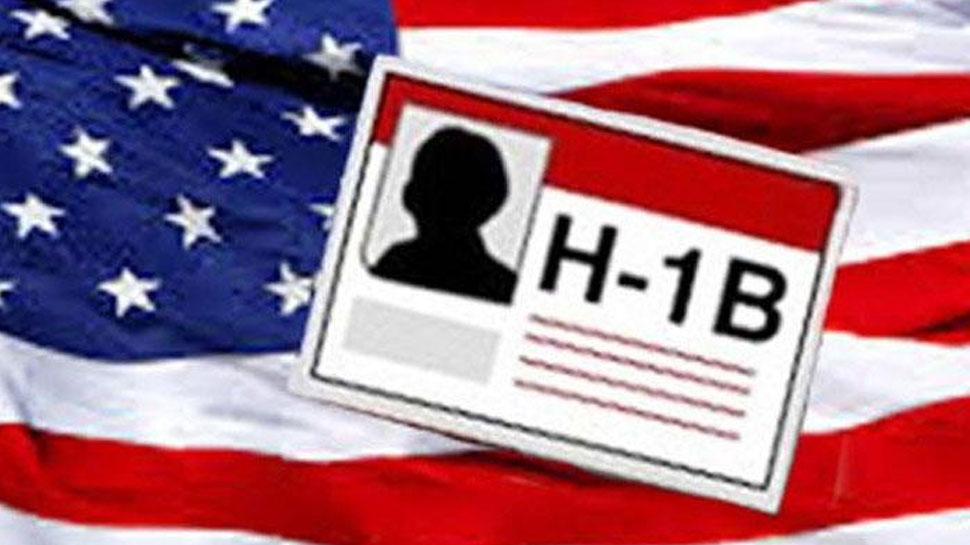New Delhi: India has not received any communication from the US on its reported decision to consider caps on H-1B work visa for nations that mandate storing of data locally, the foreign ministry said Thursday.
India had last year mandated payment firms to store customer data exclusively in the country without creating mirror sites overseas. Some US firms are opposed to this as it would require them to make an additional investment.
Irked by such requirements, the US is considering restrictions on H-1B visa that allow foreign professionals to work in that country, according to a media report.
At a media briefing on the upcoming visit of US Secretary of State Michael Pompeo from June 25 to 27, Ministry of External Affairs spokesperson Raveesh Kumar said no communication has been received on the issue from the US.
“We have not heard anything officially from the US government. We continue to reiterate and engage with the US government on this matter,” he said.
The Reserve Bank of India (RBI) in April last year asked payment firms to ensure their data are stored exclusively on local servers, setting a tight six-month deadline for compliance. That deadline was said to have been missed by some foreign firms, including credit card giants Visa and Mastercard.
Sources in the commerce ministry said no communication on the visa cap has been received from the US.
IT industry body Nasscom cautioned that any move by the US to limit visas for tech workers will weaken American companies that depend on these work permits to fill skills gaps and put jobs at risk.
Nasscom also highlighted that Indian nationals accounting for a large chunk of approved H-1B visas is a “testimony” to their skill-set, and pointed out that a “vast majority” of these visas were being sponsored by global and US multinational companies.
The statement came after a report said US was mulling 10-15 per cent cap on H-1B visa for nations that compel foreign companies to store data locally. Such a move gains significance amid a row between the US and India over trade and tariffs.
Nasscom – which represents Indian IT majors like TCS, Infosys, and Wipro as well as smaller tech firms – noted that there is no official confirmation yet on the development from the US government on the matter and that it is awaiting clarity from official channels.
“If US policy makes it more difficult to hire advanced tech workers, it will only weaken the US companies that depend on them to help fill their skills gaps, put jobs at risk, creating pressure to send technology services abroad,” Nasscom said in a statement.
Such a move, if implemented, would have a major impact on the over $ 150 billion Indian IT sector that gets a lion’s share of its revenues from the North American market. Indian IT firms use H-1B visas to send staff to client locations in the US.
However, increasing visa scrutiny over the past few years has compelled Indian IT services companies to ramp up local hiring in the US.
Nasscom said in April this year, the number of unfilled jobs stood at 7.5 million in the US. Of these, 67 per cent – or 2 in every 3 jobs – required specific technical skills.
“It is this very unmet technical requirement that skilled immigrants, including workers on H-1B visas, have helped meet in the US… The US’ global leadership in technology has been made possible, in part, by its ability to attract the most talented workers from around the world,” the statement said.
Acknowledging that Indian nationals accounted for a majority of all approved H-1B visas in FY2017, Nasscom said this is a “testimony” to their skill-set.
“Only a small share of these Indian nationals are employed by Indian companies. The vast majority of them are sponsored by global and US multinationals,” it added.
The industry body also warned that if such a move were to be implemented, it could lead to a greater crunch for businesses to access the skilled workers they need.
“…this is true for all businesses operating in the US, including both Indian as well as American and global firms,” it said.
The RBI in April 2018 put out a circular requiring that all “data relating to payment systems” are “stored in a system only in India” within six months.
International giants usually store data on global servers and the requirement to store data locally would require them to make an additional investment. But policymakers in India believe storing data locally would help monitor and conduct investigations if the need arises.
American IT and e-commerce firms have also raised concerns about certain provisions of the draft e-commerce policy.
The draft policy has called for creating a legal and technological framework for imposing restrictions on cross-border data flow from specified sources such as data generated by users in India by various sources, including e-retail platforms and social media tools.
India had earlier time and again raised the issue of tightening of norms for H-1B and L1 visas.
